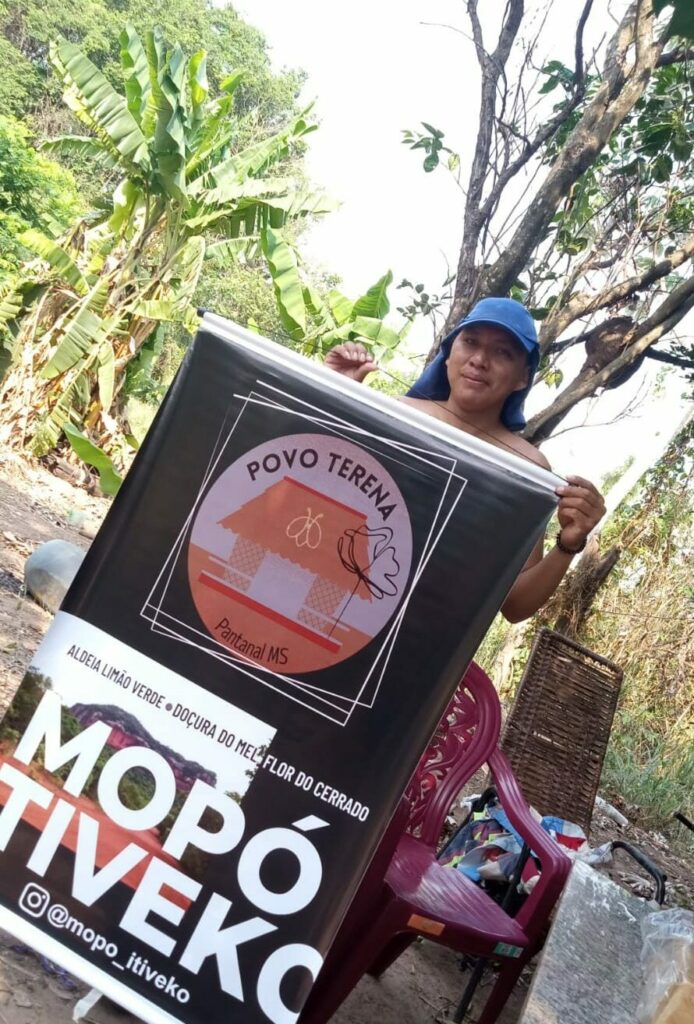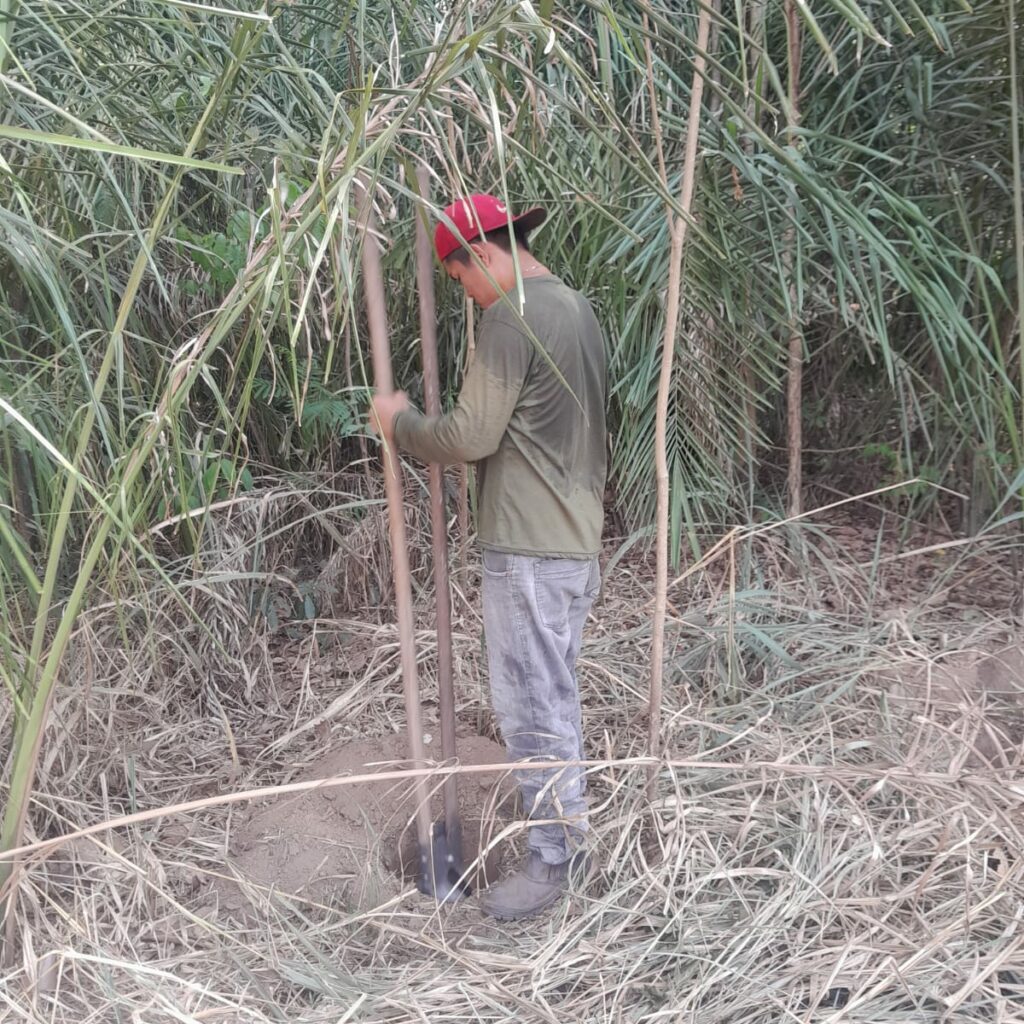Another project is coming to the Pollinating Regeneration program! The teachers Aruak and Yvoty wrote a project to strengthen the handling of native bees in the Limão Verde Village, Brazilian Pantanal. The Jataí bee (Xuli xuli in the Terena language) is traditionally used to produce the Kopenoty Syrup. Also, the presence of these animals in the region is beneficial for food production.
Author: Sílvia Lomba
Leia em português
In the Limão Verde Village, of the Terena people, the teacher Aruak Kopenoty, in addition to being an educator at the local school, also works to intensify the handling of the stingless bees Jataí (Tetragonisca angustula or Xuli xuli in Terena). With Yvoty Medina, they wrote the project ‘Mopó Itiveko’ for the Pollinating Regeneration Program, with the goal of strengthening these activities. Therefore, the production of the Kopenoty Syrup will be worked on, as well as cultural reinvigoration.
The project intends to implement three main activities: Maintenance and extension of the existing meliponary, production of the Kopenoty Syrup, and conversation encounters with the residents of the Village. So, youth and elders will have the opportunity to exchange experiences and teachings, value Terena culture, and promote ecological awareness in the youth. Therefore, it will become evident the importance of environmental and cultural preservation.
Moreover, the activities intend to show that the human being is not separate from nature, but part of it. Therefore, we hope to value activities related to local biodiversity, as well as teach these practices to the Village’s youth, showing to them other work possibilities. Also, the project will develop training in the handling of native bees among the Terena community, enlarging the population of these animals in the region and enabling honey production as a source of income.

The first workshop has already happened, and the material for the new boxes for bees have been acquired. More workshops in the village school and with Prev Fogo are scheduled! “The project is precisely for this issue of environmental preservation, with everything that is happening, especially global warming, the food is not high quality and there are a lot of pesticides. The idea of Jataí and this project is a sustainable environment, better quality of life and guiding people regarding the importance of environmental preservation and bees for the environment and the world.” said Aruak.
With this project, aside from strengthening the Terena culture, the surrounding ecosystem will benefit as well, since bees are important pollinators. Moreover, native stingless bees are more efficient pollinators of native plants when compared to the invasive Apis bees. It has been noticed in the region that in places where there are native bees, food production is positively impacted, with increased production and improved appearance and color of food.

We are very happy to be supporting such an important work. In addition to all the activities that are already happening, Aruak participated in the Regenerative Agriculture Workshop promoted by the Meli Network in the Arariboia Indigenous Territory. Thus, the experience lived in the Arariboia Indigenous Territory will also be shared among the residents of the Limão Verde Village.
To know more about the ‘Mopó Itiveko: honey house’ and other ideas that we will publicize soon in the Pollinating Regeneration program, keep following our work here!
Your donation can have a positive impact on the world!
Subscribe to receive our Newsletter!
Find us also at Linkedin, Facebook, Twitter or Instagram
www.meli-bees.org
❤️

